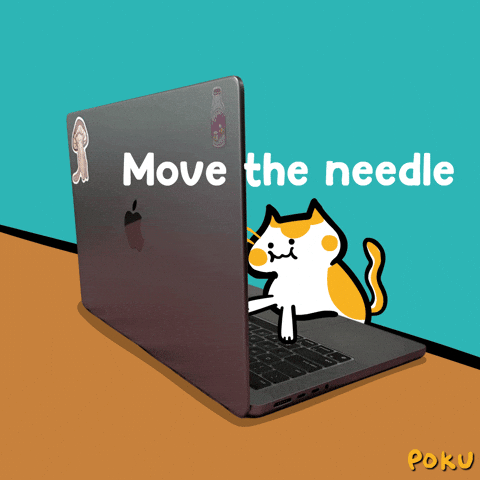How many times in a meeting or while working in a team have you come across a situation when you struggled to put your point across?
I’ve been there multiple times. I’ve faced language and cultural barriers in my journey. I struggled to explain my ideas and felt like my technical expertise was overshadowed by the language barrier.
Those awkward moments when you give up on explaining your point and let someone else take the lead feel belittling. This communication gap costs you opportunities, career growth and promotions.
But you can take your command back by overcoming the language barrier. I did it, and you can too. This article will set you on the right path for career success with actionable tips on how to overcome language barrier in the workplace.
Overcoming language barrier: The myth of perfection
Learning a language and learning to use it as a tool for influence are two different things. Most professionals focus on the former while totally ignoring the latter. Grammar, vocabulary, and pronunciation are important, but they’re only the foundation.

The truth is, no one in the room is waiting for you to sound perfect. They’re waiting to hear what you have to say. They know you’re not a native speaker, hence they’re not focused on your accent or minor mistakes; they just want to understand your message.
You don’t need perfect English to sound credible in a meeting. You need to make people feel like you know what you’re talking about. When you do this, people stop focusing on your accent or grammar and start listening to the value you bring. That’s when communication turns into influence.
5 strategies for overcoming language barrier in workplace

1. Get basic language training and master business communication
The very first is to get comfortable with the basics of English. Consider taking language training if your company offers, or you can find tons of free resources on the internet.
If you’re already comfortable with the basics, don’t spend years polishing the language itself. Shift your focus to mastering the skills of business communication: clarity, persuasion, and presence.
Learning to communicate in a business context is the easiest way to overcome the language barrier in the workplace. This means:
- Thinking in clear structures. Start with the problem, share the insight, and finish with the action you recommend.
- Choosing simplicity over complexity. Keep your words simple; most people remember clarity, not cleverness.
- Expressing an idea so that your audience understands it the first time. Practice saying it out loud until you can land the point without losing yourself in the details.

2. Pick up corporate and cultural norms and slang
Overcoming the language barrier doesn’t only mean learning the language. It involves both verbal and non-verbal communication. Think of phrases, slang, jokes or words that people in that region or company use.
Think of gestures, hand signs, the way people sit, respond and react to certain situations. All these tiny elements are a part of language and cultural barriers.
Start by observing and actively listening. Notice the phrases your colleagues use in meetings. Pay attention to the small things: how they greet each other, how they signal agreement or disagreement without saying a word, their body language, hand signs and even the jokes and phrases that come up in casual chat.
It will not only help with business communication but also make you better at small talk and networking. Most people are happy to help when you show genuine curiosity.
I recommend noting down any actions, phrases or words you see people use that you don’t understand. You can later revisit it and even ask a trusted coworker, mentor, or friend to explain. This helps expand your vocabulary and cultural context.
As you pick up these small elements, you’ll find that your communication begins to blend more naturally with your environment.

3. Speak slowly and don’t be afraid of pauses
Non-natives often feel the pressure of keeping up with the pace of natives and fumble in the process. A simple solution: speak slowly. I know it sounds generic, but it makes the biggest difference in speaking clearly.
When you slow down, you get time to choose your words. Your speech has fewer “Ums” and “Ahs”. You sound calm, collected and authoritative. And don’t be afraid of pauses, they’re your best friends. In fact, the best speakers use silence as a tool. It makes them sound thoughtful rather than uncertain.
Take a brief pause before you answer a question and during your speeches and conversations. This is how you buy time to articulate your thoughts while exerting authority and confidence.

4. Ask for clarification
Your co-worker or manager said something that you don’t quite understand. Instead of pretending to follow along and later asking ChatGPT, request for clarification.
It’s better to pause for a moment than to walk away unsure of what’s expected. Simple phrases like “Just to confirm…” or “Could you rephrase that for me?” show that you care about getting things right.
And no, it doesn’t make you look dumb. People respect and appreciate it. They’d prefer you ask rather than make assumptions. And each time you do it, you’re also teaching yourself to be more confident.

5. Repetition and Confirmation
One of the simplest ways to avoid misunderstandings when you’re facing language barriers is to repeat what you’ve heard. It signals that you’re paying attention and gives the other person a chance to confirm or correct your understanding.
A quick line like, “So just to confirm, what you’re saying is…” or “Let me make sure I got this right…” can save you from bigger problems later.
This habit also makes you sound more deliberate. Instead of rushing ahead on assumptions, you’re showing that accuracy matters to you. And over time, this small practice builds trust.

Take back control of your voice
Language barriers don’t have to limit how far you can go in your career. The right strategies help you stop feeling like an outsider and start being heard for the expertise you already have. It’s not about speaking perfect English; it’s about learning how to make your ideas land.
And once you do that, visibility, promotion, and leadership become possible. One thing that helped me a lot with the language barrier at work as learning their native humor i.e. jokes, puns, memes, etc.
If you’re a data professional ready to move from technical expert to trusted leader, this is exactly what we work on together in my 8‑week personalised mentorship program.
We build your confidence, sharpen your communication, and prepare you for the rooms where decisions are made, even if you’re struggling with a language barrier. I share my strategies and insights that helped me break out of the cultural and language barrier and confidently enter the leadership role.









